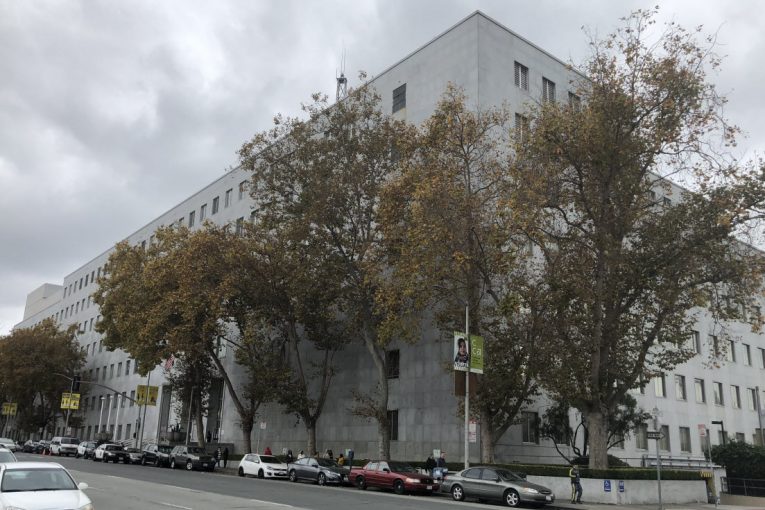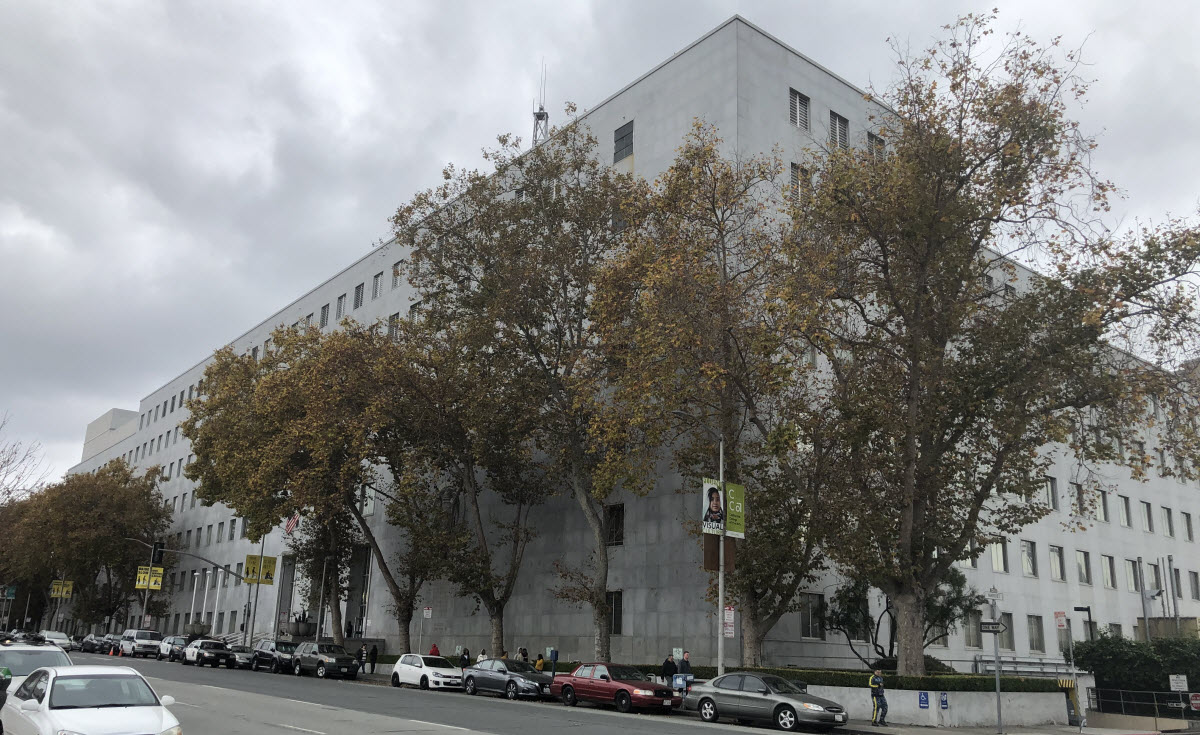

By Allison Ramsey
Fridays in Department 25, presided over by Judge Brandon P. Conroy, are designated for resentencing. This Friday was no different—however, the rulings were.
First, Judge Conroy ruled that a manslaughter plea was available for resentencing under the changes in law under SB 1437. Napoleon Brown, Mayor London Breed’s brother, had plead to manslaughter after pushing Lenties White from a getaway car who was then struck by another vehicle back in 2000.
SB 1437 explicitly changed criminal liability for murder, but did not indicate if it would cover other instances where someone was charged with murder but plead to the lessor charge of manslaughter. The law itself uses several different words in order to determine the new criminal liability, but each one has its own legal significance. For example, in the purpose section of the bill, it uses the word “homicide,” but the bill fails to articulate if homicide is limited to murder or includes the lesser charge of manslaughter. Later, in the actual of the law, the word “murder” is specifically used, leading readers to assume that this law applies to a broader range of homicide crimes.
Mr. Brown’s lawyer, Mr. Zilversmit, used this ambiguity to Mr. Brown’s advantage. The rules of legal interpretation require that when there is ambiguity, the interpretation most favorable to the defendant is used. Mr. Zilversmit accurately pointed out that “homicide” encompasses manslaughter charges while “murder” does not. Mr. Zilversmit also demonstrated that if the District Attorney’s position was applied, people who were charged with murder but plead to manslaughter would not be extended relief at all.
San Francisco Assistant District Attorneys Allison MacBeth and Dave Merin, conversely argued that manslaughter was not covered by SB 1437. And in fact, on procedural grounds, SB 1437 relief does not extend to include Mr. Brown. Mr. Brown had previously been convicted of murder, but a new trial was granted after an appeal. This new trial, however, left the manslaughter plea unaffected. Therefore, in the opinion of the ADAs, the charge under which Mr. Brown would be eligible for relief was not before the court.
The prosecutors then emphasized that the term “manslaughter” appears nowhere in SB 1437. Judge Conroy interrupted, asking if the purpose of the law should be disregarded. The Assistant District Attorneys restated their argument that the plain language of the law meant SB 1437 only applied to murder. They did not make any arguments regarding the ambiguity, nor did they articulate any nuanced arguments articulating why the purpose of the law was not to cover manslaughter.
Judge Conroy agreed with Mr. Zilversmit, and ruled that SB 1437 applied to manslaughter pleas when there was an original charge of murder. Judge Conroy stated that the inconsistencies in the language of the law meant that the Court must construe the law broadly. A prima facie hearing, a preliminary examination to see if the case is even worth having a full evidentiary hearing, was ordered for the case on January 24, 2020.
Second, Judge Conroy denied a motion to dismiss him as judge from a case. The issue was an extraordinarily-technical one. The matter hinged on whether the Court was one of all-purpose or if it was only for special hearings. The particular issue of a Court set up specifically to hear resentencing matters had not yet been determined in this context.
The prosecutor argued to have Judge Conroy dismissed the case. The Assistant District Attorney brought up that the issues the Court was hearing were not typical trial issues and therefore the timeliness of their motion was proper.
Defense attorneys Sarah Potter and Michael Gaines brought up the structural aspects of the Court meant it was closer to one of all purpose. Specifically, the Court was set up for a given day of the week and for a specific judge. Ms. Potter further argued that the delay by the Assistant District Attorney was not in keeping with the statutory language.
Judge Conroy agreed with the petitioner, articulating that the Court he presides over is one of all purpose. Judge Conroy reasoned that the regularity of the days of hearings, the designation of him as a judge, that Deputy Public Defender Jacque Wilson and Assistant District Attorney Allison MacBeth were the designated attorneys, and the filings were submitted to Judge Conroy’s clerk all meant that it was of all purpose. He stated that perhaps more concerning was the amount of time and opportunities the prosecutor had to file the motion but somehow did not get around to it after a lot of other paperwork had already been submitted.
Third and finally, Judge Conroy ruled against his prior ruling keeping parole hearing transcripts out of the resentencing hearing. The Assistant District Attorney argued that a recent Supreme Court case meant that there was no Fifth Amendment issue for a parole hearing, based on a case where the Supreme Court ruled that clemency interviews are not compelled testimony but voluntary. The Assistant District Attorney argued that there are contexts that implicate the Fifth Amendment and therefore would not be admissible, but those circumstances did not exist in a voluntary interview. He furthered this argument by equating testimony at a parole board hearing to that of testimony for a clemency proceeding.
The defense attorney, a private attorney, provided that even if the Supreme Court case applied in this context, the backstop of Due Process prevents the statements from coming in.
The Assistant District Attorney rebutted the defense’s argument, stating that the Supreme Court ruled on the Due Process issue and that it did not apply in this instance.
Judge Conroy agreed with the prosecution. He stated that he is bound by that case, and that the cases articulated by the Assistant District Attorney are correct. Judge Conroy did, however, state that while the parole board statements be admitted as evidence in an evidentiary hearing, he will not give them much weight. Implicitly disagreeing with the Supreme Court, he said that while the statements are not legally compelled, they are as a practicality; there is immense pressure put on inmates to over-admit and take as much responsibility as they can in order to be granted parole.
SB 1437 continues to provide California courts with questions of specificity and exact language. This morning Department 25 attempted to answer some of those questions. But as courts, district attorneys and defense attorneys fight these battles in the courtroom, SB 1437 petitioners – convicted murders, who have never killed anyone – are just hoping for the chance to go home.

I find this strange. So London Breed’s brother is caught up in felony murder and yet she supported someone for DA who would have not been sympathetic to her brother’s plight.